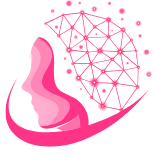After passing -la In the early 1920’s as a babysitter in the United Kingdom, Laura Bates realized that girls who were careful of their bodies were worried about their bodies, driven by the marketing they received. In 2012, Bates, a feminist author and activist in London, started the everyday sexism project, a website dedicated to documenting and combating sexism, misogyny and gender-based violence around the world, highlighting insidious cases such as invisible work, referring to women as girls and commenting on their dress in professional environments. The site became a book in 2014.
Since then, women’s sexual harassment has been embedded in online spaces, including the experiences of battles with being a victim of Deepfake’s pornography, which prompted him to write his new book, The new age of sexism: as the IA and emerging technologies reinvent misogynyPosted on September 9 on Sourcebooks.
Although gender -based violence is still perpetrated by people close to the victim, quick, easy and cheap access if not free to artificial intelligence, “lowers the bar to access this particular form of abuse very quickly,” says Bates in Wired. “Anyone of any age who is accessing the Internet now can … make abusive and very realistic pornographic images of any woman or girl who have called a picture completely dressed in the Internet.”
Through first -hand research that involved talking with technology and women’s creators who have been victims of Ai and Deepfake technology, as well as using the chat and sexbots that decrease, a The new age of sexism Bates shows the ways in which, if not regulated and urgent, AI is the new border in the subjugation of women.
“ I know that people will think that “ it sounds like a feminist, annoying, annoying and strong feminist, “ but if we look at the top of large technology companies, men of these levels say exactly the same as I am, ” says Bates, pointing Jan Leike, who turned to Openai last year in the midst of worries about the company that intended for “ brilliant products ” for the example. “This warning call sounds for people who are embedded in these companies at high levels. The question is if we are willing to listen.”
Bates also talks to Wired on how the girlfriends and virtual attendees can indoctrinate misogyny in children, the environmental footprint of the AI that reaches women first, and how it never takes long to deviate from new technologies in the biases of their creators and users.
This interview was condensed and edited by duration and clarity.
Wired: One thing that caught my book’s attention is that it never takes long to develop -in misogyny. Do you think it is fair to say?
Laura Bates: It is a long and well -affiliated pattern. We have seen it with the Internet, we have seen it on social networks, we have seen it with online pornography. Almost always, when we have enough privilege to have access to new forms of technology, there will be a significant subset that will end up quickly to harass women, abuse women, submit women and maintain patriarchal control over women. The reason for this is because the technology itself is not inherently good or bad or something; Is coded with the bias of its creators. It reflects the forms of historical misogyny of society, but it gives them a new life. It gives them new means to achieve new forms of abuse. What is particularly worrying about this new border of technology with AI and generative forms of AI in particular is that not only does it regurgitate those forms of abuse existing to us, but also intensifies them through forms of threats, harassment and control to exercise the abusers.



